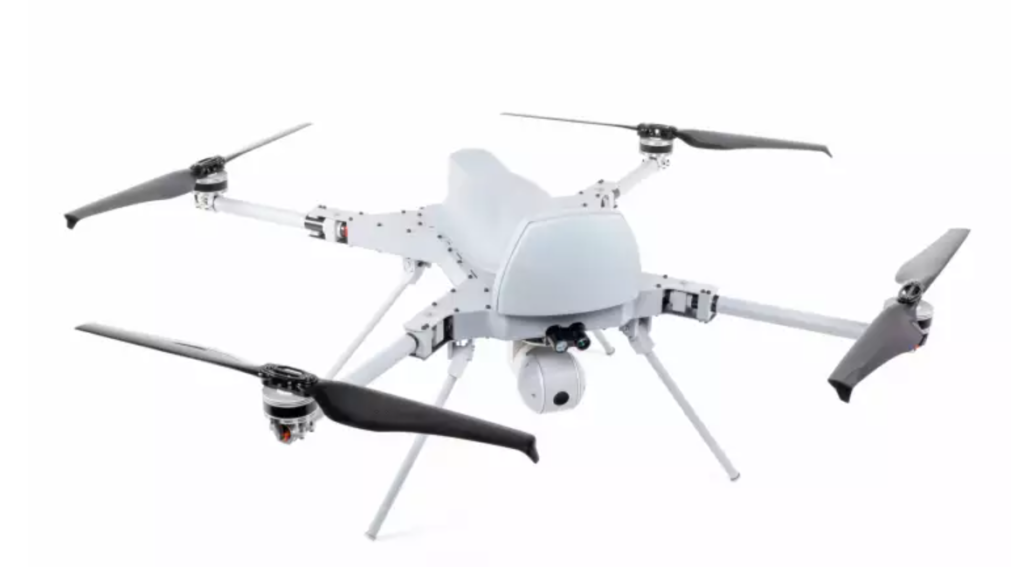ADF STAFF
From Ethiopia to Libya to Mali, armed drones have become an increasingly important part of the battlefield arsenal. The rapid rise of drones powered by artificial intelligence (AI) is raising concerns among experts about how they might be used by security forces and extremist groups.
Unlike the most widely used drone technology, which relies on humans to direct the machines, AI-powered drones are capable of identifying potential targets with no human oversight. Such AI-powered technology is rare in Africa currently, but experts worry that the use of autonomous drones could grow, making it possible for terrorist groups to inflict even more harm upon civilians. This is especially true in the Sahel, where coups in Burkina Faso, Mali and Niger have done little to disrupt extremist violence and might actually be making insecurity worse.
“The infiltration of drones among extremist groups in the Sahel region has added yet another dimension to an already intricate landscape, escalating threats and exacerbating existing vulnerabilities,” analyst Robert Bociaga wrote recently in The Africa Report.
In recent years, drones — also known as unmanned aerial vehicles (UAVs) — have become widely used tools for civilian and military purposes. During the COVID-19 pandemic, they were used to spread public health messages, deliver medicine to isolated communities and sanitize public spaces. In regions plagued by extremists, both sides use drones to gather intelligence and to monitor the battlefield.
However, drones have become low-cost aerial weapons platforms capable of delivering one-off attacks with mortar shells and other explosives. The Sudanese Armed Forces have used that technique to attack fighters with the paramilitary Rapid Support Forces.
More sophisticated drones, such as military-grade UAVs Turkey and Iran have supplied to African nations, can disable tanks and eliminate enemy positions — a tactic the Ethiopian military used repeatedly against Tigrayan rebels in 2021.
Those military-grade UAVs typically cost millions of dollars each, putting them out of reach for most rebel groups. However, commercially available quadcopter-style hobby drones can be weaponized by governments and extremist groups alike.
So far, African nations have seen only one incident of a self-directed drone killing a person: in Libya in 2020.
“But the implications of deploying these weapons systems in Africa is still stark,” analysts Ezenwa E. Olumba, Samuel Oyewole, and Tony Onazi Oche wrote recently in The Conversation.
Russia’s invasion of Ukraine has made manifest the potential impact self-directed drones could have on civilian communities and the battlefield. Ukrainians have used thousands of such drones to attack Russian troops along the front line and Russian infrastructure deep behind those lines.
“Rapid advances in artificial intelligence and the intense use of drones in conflicts in Ukraine and the Middle East have combined to make the issue that much more urgent,” Modern Diplomacy wrote recently.
James Patton Rogers, executive director of the Cornell Brooks Tech Policy Institute at Cornell University, sees conflicts in Ethiopia, Libya and Sudan as the start of a “new proliferated drone world.”
“We need only look at the reported incidents of civilian harm taking place in Nigeria, DRC (Democratic Republic of the Congo), and Burkina Faso by the state use of drones to see how drones can be misused,” Rogers told Business Insider.
As the terrorist threat in the Sahel persists, experts say, so does the potential for AI-powered drones to become part of terrorists’ arsenals.
“The prospect of autonomous weapons falling into the hands of terrorist groups and militias in the Sahel is alarming,” Olumba, Oyewole and Oche wrote. “They would introduce a new deadly dimension to an already brutal conflict.”

